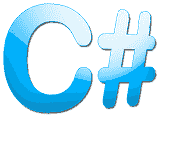
C# is the most popularly used programming language for developing different types of .net applications. As per todays trend, C# has more demand. C# is an Object Oriented Programming language, It is introduced specifically for .NET and thus has no backward compatibility issues.
Deccansoft C# Training course is the entry level program for all those beginners who are looking for a career in .net and thus will have to begin with developing command over the programming language syntax. At our C# Training Institute, our course not only helps one in understanding language syntax but it also helps in knowing good practices to become a successful software developer. At our C# training in Hyderabad, teaching methodology is such that our trainers will ease teach participants C# language use the same interchangeably for other advanced topics like XML, ADO.NET, Win Forms etc... We assure you that learning C# will surely make you a better candidate to get job than most of the other fresher's who learn only one programming language.
C# Training at Deccansoft includes detailed explanation of every topic covering all the concepts related to the topic and is followed by practical demonstration / walkthrough of the same in classroom. Students in classroom will be provided with excellent course material prepared by our expert team so that the same can be used for revising the subject at later point of time (may be just before attending an interview). Our C# training center provides excellent course material which contains important points about the topic, sample programs and walkthroughs. These will help the participant to practice the examples independently and develop expertise in the subject knowledge.
Participants are required to have basic knowledge of any one programming language.
In case you don’t have knowledge of any programming knowledge and if you are beginning your career in programming for the first time, we would suggest you to learn “C” for free from http://www.bestCTraining.com.